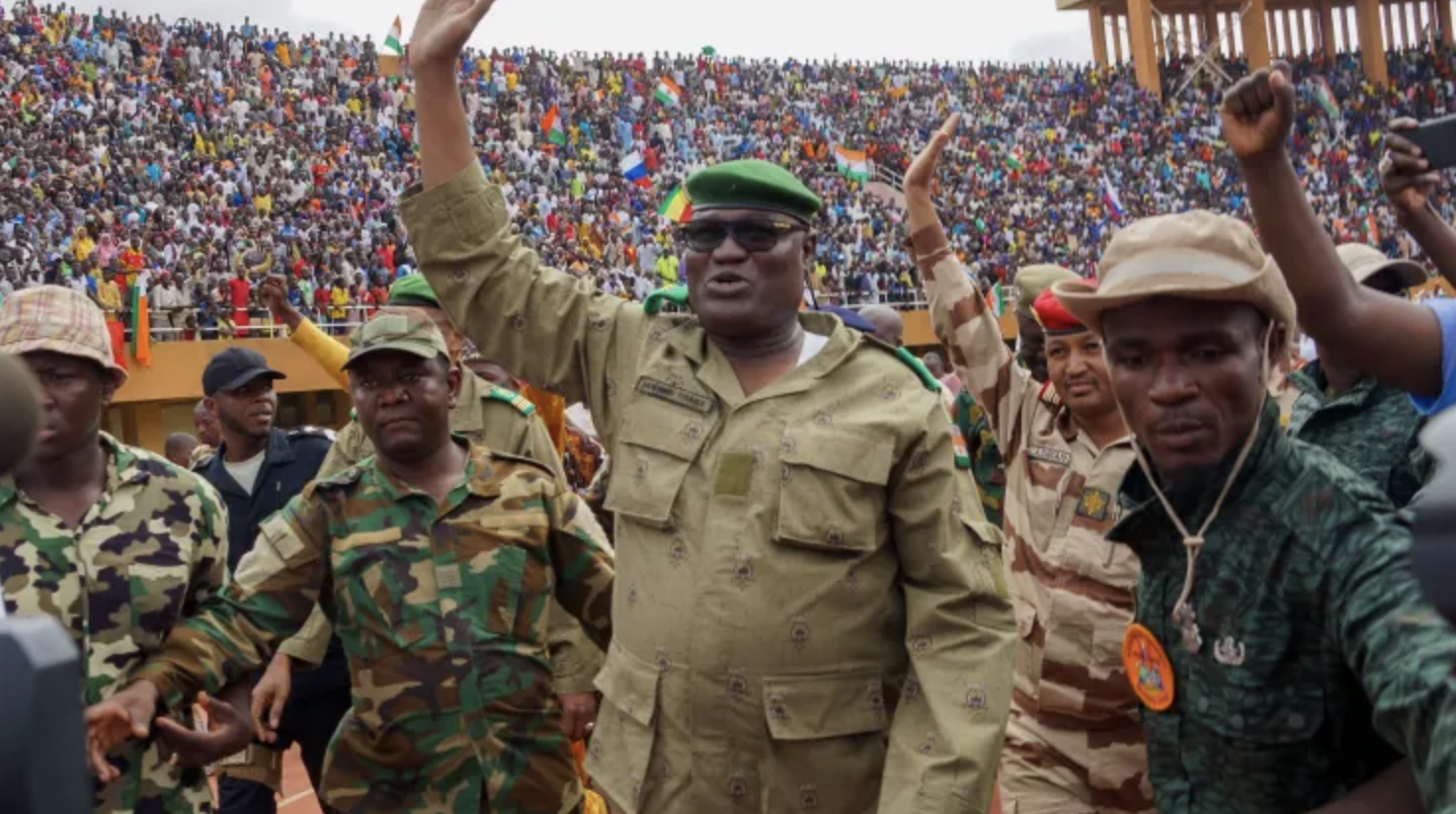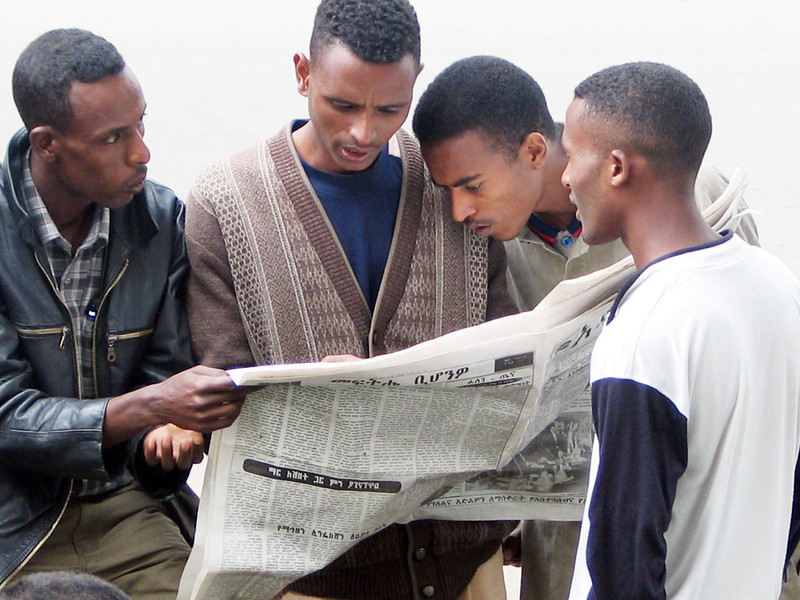We are excited to announce that Brink is now part of Africa Practice. Learn more
From Conakry to N’Djamena, coups d’état have profoundly transformed West Africa’s political landscape. The juntas – led by officers in Mali, Guinea, Chad, Burkina Faso and Niger – have, in most cases, overturned the political order and upset the rules of the imperfect democracies that characterised these countries. While most putschists pledged to preserve, restore and defend democratic ideals, the juntas that have seized power over the last three years are yet to deliver on their main promise: a transition back to civilian rule.
Despite negotiations with regional bodies and promises of realistic transition timelines, coup leaders have been more focused on rhetoric than action. They have prioritised restoring security and debating the merits of democracy. Commitments have been made to international partners to maintain access to foreign aid but no elections look set to take place next year in Burkina Faso, Niger or Guinea. All three were due to hold polls in 2024, as proclaimed by putschists after seizing power. Meanwhile, Mali keeps postponing its presidential election, which was originally set to take place in February 2024. Popular support for the juntas is waning as coup leaders’ promises are slow to materialise.
Initial support wanes as promises fail to materialise
Most coups in the region, with the possible exception of Chad – which is more accurately described as an unconstitutional succession – benefited from broad initial support amid renewed hope and high expectations for change. The contrast between the ousted old guard and newer, younger leaders was stark, bolstering their popularity. In countries where political elites were perceived as corrupt, corruptible and corrupting, and where most human indicators are among the lowest on the planet, a change of leadership was celebrated. But this initial support has contributed to a skewed perception of widespread and unconditional backing, which leaders have latched onto to stay in power.
They are finding it increasingly challenging to deliver on their promises given the enormity of the tasks and the relative inexperience of the transitional governments. Security problems continue to affect Burkina Faso, Mali, Niger and Chad, with an increase in fighting and casualties since each country’s coup. Tough macroeconomic conditions and the rising price of basic necessities are eroding the population’s confidence in the ability of the juntas to act as vehicles for change. In parallel, more stringent restrictions on freedom of speech, press and protest are preventing populations’ grievances from being heard.
Despite this, there is limited appetite among the populations of these transitional states for a return to the previous order. The lack of credible alternatives – with political opponents forced into exile or silenced – means there is a large degree of acceptance of the status quo. The situation varies from country to country. In Mali, the junta forced the withdrawal of UN and French troops and partnered with Russian paramilitary force Wagner. Despite this, it has failed to solve the security situation, with renewed fighting across the country. As a result, popular support has dwindled considerably everywhere but in Bamako. Meanwhile, Guinea has concentrated its efforts on striking an international diplomatic balance between old and new partners, while leveraging its solid macroeconomic foundations and mining sector to re-launch numerous infrastructure projects. The population has been more receptive to these visible and tangible results. Colonel Mamadi Doumbouya, the junta’s leader, remains relatively popular.
Regional and international efforts achieved little
In the absence of domestic counterweights to the juntas’ powers, regional and international bodies, alongside development partners, have sought to hold them accountable. Sanctions were quickly imposed on Mali, Guinea and Burkina Faso weeks after the coups by ECOWAS, severely limiting trade, in a bid to obtain concessions and firm timelines for a return to civilian rule. Military intervention was considered against Niger in August 2023 by a regional ECOWAS force. International partners have limited their financial support and publicly denounced the spate of coups. These initiatives have proved somewhat effective in prompting most juntas to define a path to elections in a bid to limit the effects of the sanctions. Yet no credible timelines have been validated or appear to be achievable.
Mali, which was due to hold its presidential election in February 2024, announced a “minor delay” in September. The country is grappling with renewed armed insurgencies in the north against jihadist groups and a Tuareg rebel alliance. In this context, it is unlikely that the security conditions necessary to hold a nationwide election will be met within a few months.
The situation is similar in Burkina Faso, where the junta led by Captain Ibrahim Traoré has refused to put forward a date for elections unless security conditions improve – an unlikely scenario in the short-to-mid term given the breadth and depth of insecurity. Traoré also called for a revision of the country’s constitution – a lengthy process that will further stall the transition.
Guinea, which is not impacted by Sahelian insecurity dynamics, has outlined a ten-point agenda to be achieved before the return to civilian rule. Although it has agreed with ECOWAS that elections will take place in early 2025, it is unlikely that all conditions (which include a revision of the constitution and a national census) will be met.
Meanwhile, Niger has not yet unveiled a timetable or agenda for its transition, as leadership is emboldened by the threat of a military intervention subsiding. Chad, whose transition slated for October 2022 did not go ahead, is due to hold elections in November 2024. While the country has a clear roadmap, it is currently considering whether Mahamat Idriss Deby, who seized power in 2021, can take part in the election.
“Be careful, because sometimes temporary lasts a long time.”
There are also very clear doubts about the willingness of the juntas to renounce their power. Guinean leader Doumbouya spoke before the UN General Assembly where he suggested democratic governance was not adapted to “African realities, our customs and our environment”. His speech was welcomed by many leaders and civilians in the sub-region. The large number of coups d’état within ECOWAS (almost a third of the member states) has also strengthened mutually supportive leaders. Niger, Mali and Burkina Faso have announced the creation of the Alliance of Sahel States (AES), while Guinea has offered a lifeline to landlocked juntas by keeping its borders and access to the sea open.
Promises of short-term transitions are fading. Juntas are now faced with the challenge of governing countries over the medium-to-long term. Failure to create a semblance of real change and to address structural development and security challenges will lead to further erosion of popular support and threaten the juntas’ power, further plunging the region into uncertainty.
About the author
Antoine Drogoul, a Senior Consultant at Africa Practice, is stationed in Dakar, where he specialises in Francophone Africa. His primary areas of expertise encompass geopolitical matters and the mining sector. He can be reached at [email protected].
Proud to be BCorp. We are part of the global movement for an inclusive, equitable, and regenerative economic system. Learn more



